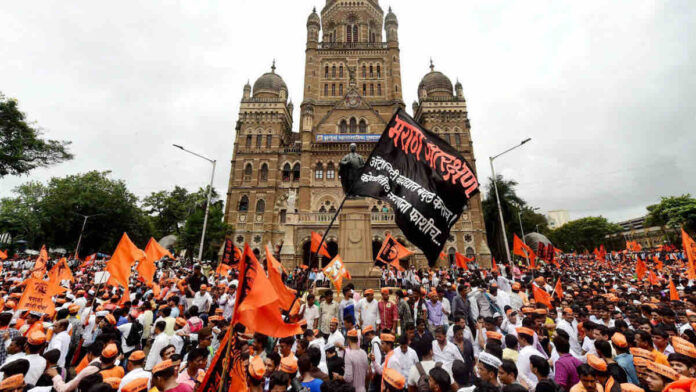The Maharashtra State Commission for Backward Classes (MSCBC) has strongly advocated for the Maratha community’s reservation in educational institutions and government jobs, citing “exceptional backwardness.” This assertion was made in an affidavit submitted to the Bombay High Court on July 26, in response to petitions challenging the reservation granted to the community.
According to the commission, an alarming 94 percent of suicides committed by individuals from the open category over the past decade involved members of the Maratha community, underscoring their profound distress and social exclusion. In February, the Maharashtra government had recognized these issues, granting a 10 percent reservation to the Maratha community under the Socially and Educationally Backward Class (SEBC) category.
The affidavit details findings from quantitative research studies and previous committee reports, all of which highlight the Marathas’ significant social and economic challenges. “The community’s economic conditions starkly contrast with the buoyant economic environment of India, showcasing their unusual and extraordinary backwardness,” stated the commission.
Further emphasizing the severity of the community’s plight, the MSCBC pointed to the high incidence of suicide among Maratha farmers from 2018 to 2023 compared to other groups, a dire reflection of desperation and lack of societal opportunities.
Addressing the legal framework, the commission argued that the 50 percent cap on reservations could be exceeded in cases of exceptional or extraordinary circumstances, suggesting that the Maratha community’s situation warrants such an exception.
Also Read
The data also illustrated significant disparities in living conditions, financial obligations, and education levels between the Maratha community and the open category, with the former displaying higher rates of poverty, reliance on inadequate housing, and lower educational attainment.




